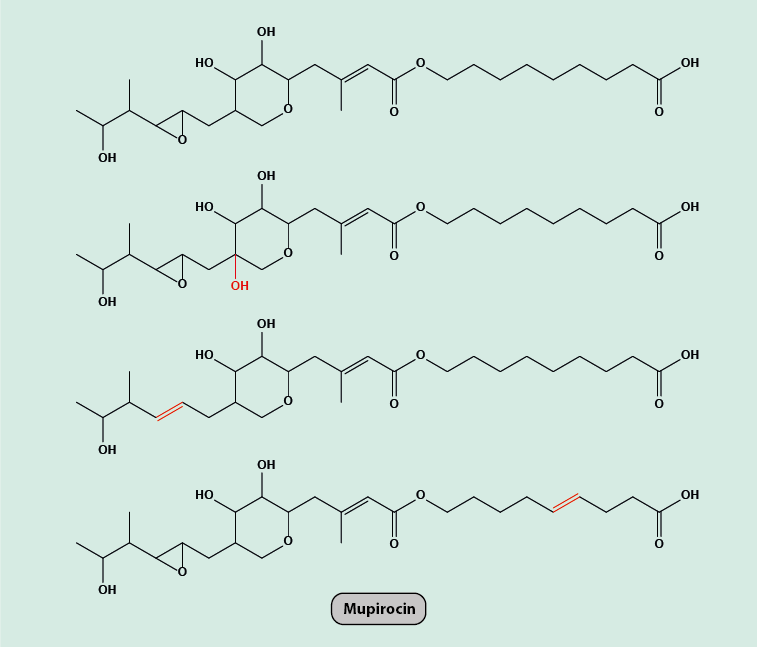Mupirocin
Mupirocin is an antibacterial agent which is effective in treating skin infections by a (small) range of aerobic bacteria. Mupirocin is used as a topical treatment in the form of creams or ointments. It is also used to eliminate asymptomatic methicillin-resistant staphylococcus aureus (MRSA) infections in the nose (for example, ahead of maxillofacial surgery), but there are increasing problems with resistant strains of s. aureus. Because of increasing resistance, mupirocin is not considered to be a suitable agent for long-term antibacterial treatment. Mupirocin has further been used as a ‘disinfectant’ ahead of minor skin surgery, such as the excision of small basal cell carcinoma (BCC) lesions.
Mupirocin has been known for approximately 50 years. It is isolated from some pseudomonas strains and, in common with other antibacterial agents isolated from bacteria, there are groups of bacteria that are naturally resistant to it. Mupirocin is a mixture of several derivatives of pseudomonic acid (Figure 1). The mechanism of antibacterial activity of mupirocin is based predominantly on its interference with the bacterial cell metabolism (RNA), hindering bacterial protein synthesis.
